The 1942 re-release of Grisou, a 1938 Albatros production shot in the mines of Lens, northern France, was given an alternative title, 'The Men Without Sunlight'. 'Grisou' mean firedamp, the gas in coalmines that leads to explosions. I'm not sure why the new title was given, unless it was to fool cinema-goers into believing this was a different film from the one they might have seen four years earlier.
Easier to explain are the other changes to the credits. Four pages appear in 1942 with curious black smudges over some of the wording, as if someone has tried to efface some of what was written:
Easier to explain are the other changes to the credits. Four pages appear in 1942 with curious black smudges over some of the wording, as if someone has tried to efface some of what was written:
That is, more or less, what has happened. A notice at the beginning of the René Chateau dvd explains that the German authorities during the Occupation had permitted the distribution of the film on condition that the names of anyone Jewish be removed from the credits. Here are those pages from the 1938 version of the film (the René Chateau dvd includes both sets of credits, as historical testimony):
The first name suppressed is that of Marcel Dalio, the great actor, though his involvement in this film was only as assistant to Pierre Brasseur in the adaptation of his play for the screen. Next is the assistant director, Russian-born Sacha Kamenka (later to be production manager on Hiroshima mon amour). Then it is the assistant V. Koura, who had earlier worked alongside several other names from these credits on Jean Renoir's Les Bas-fonds (1936), another Albatros production. I haven't found anything else about Koura (not even what the 'V' stands for). The fourth name to be suppressed is that of the band leader and composer Ray Ventura, later to become a familiar figure in French film musicals. (And he was Sacha Distel's uncle).
As well as blacking out these names the 1942 credits cut a fifth page entirely, suppressing two further names:
As well as blacking out these names the 1942 credits cut a fifth page entirely, suppressing two further names:
Alexandre Kamenka, father of Sacha, was born in Odessa in 1888, and was one of the founders of the Albatros production company. Zederbaum was a close associate in the running of the company.
I haven't before seen so crude a mode of censorship as the scrubbing out of names in the credits, and would be interested to hear (here) of other examples.
I haven't before seen so crude a mode of censorship as the scrubbing out of names in the credits, and would be interested to hear (here) of other examples.
Of a different order of interest are the film's closing credits, or more exactly the novel device used to signal that the film has finished. Down in the mine, we see someone pushing a truck full of coal, moving from back to front of the space. On the truck is written the word 'FIN', which grows larger until it dissolves into the production company logo:
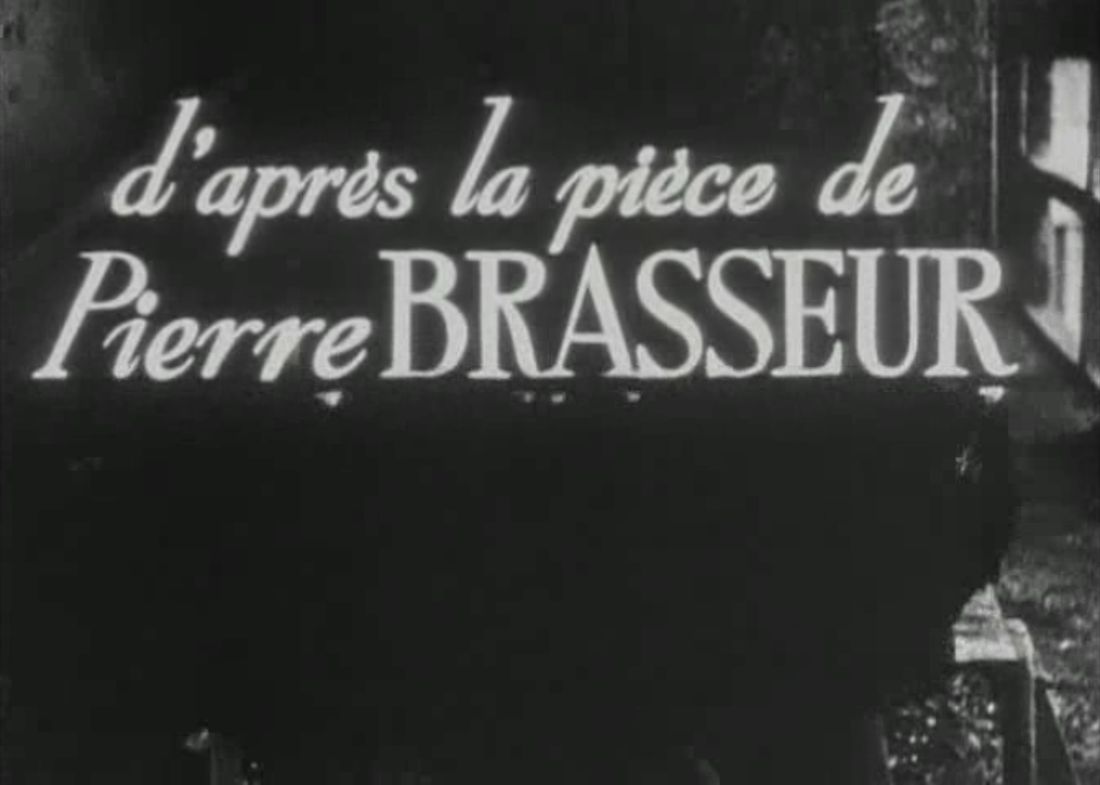
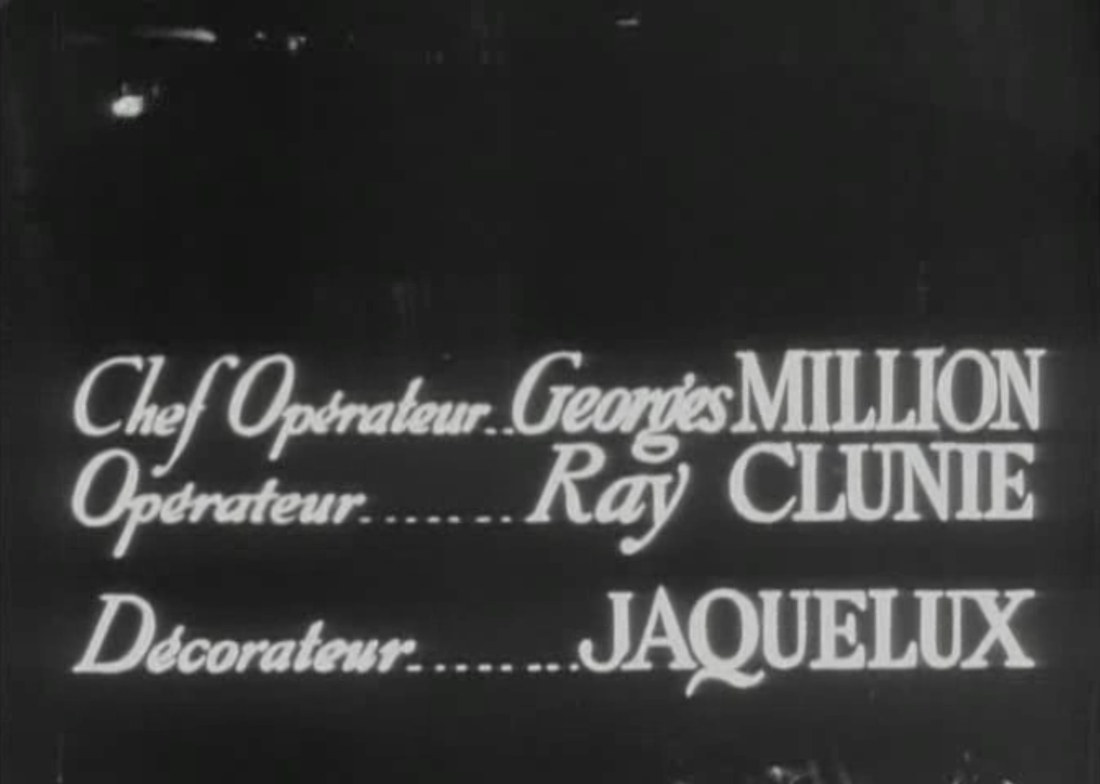
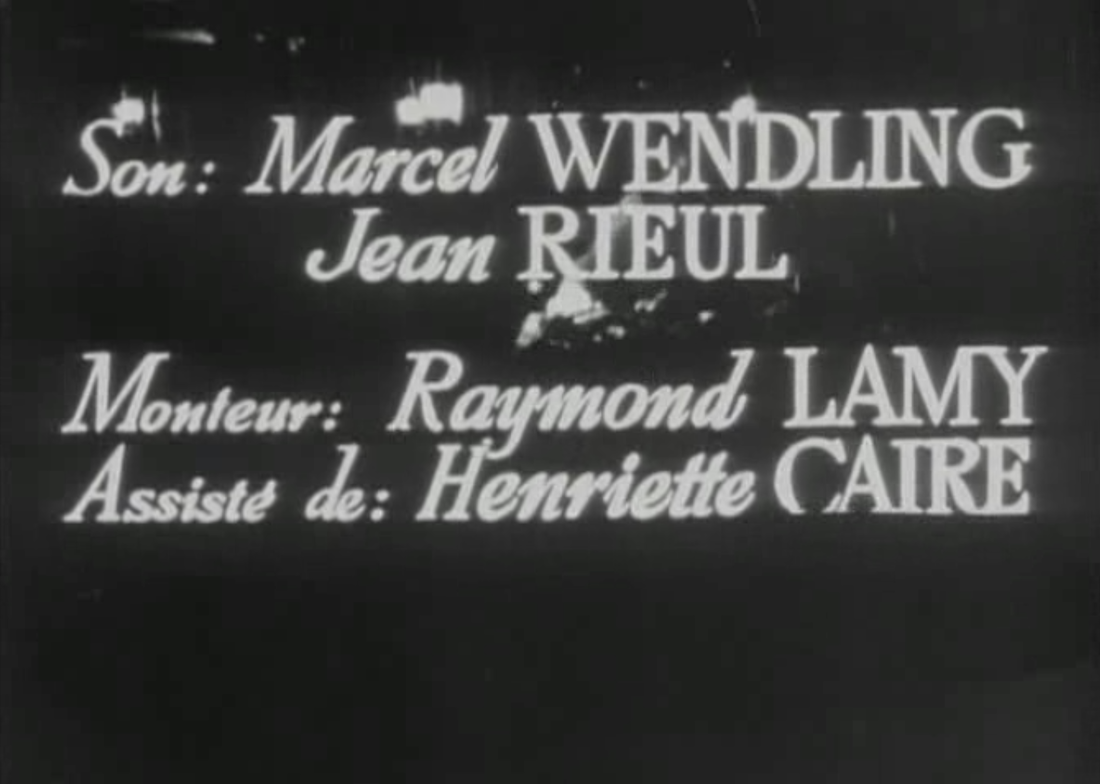
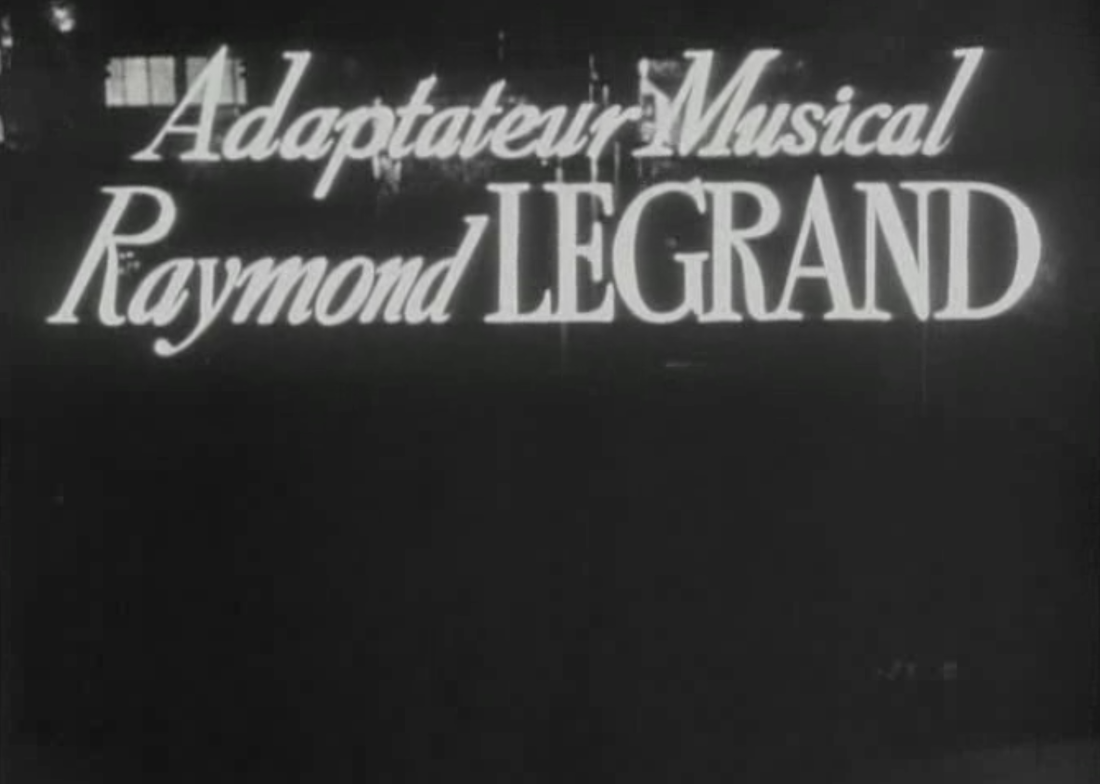
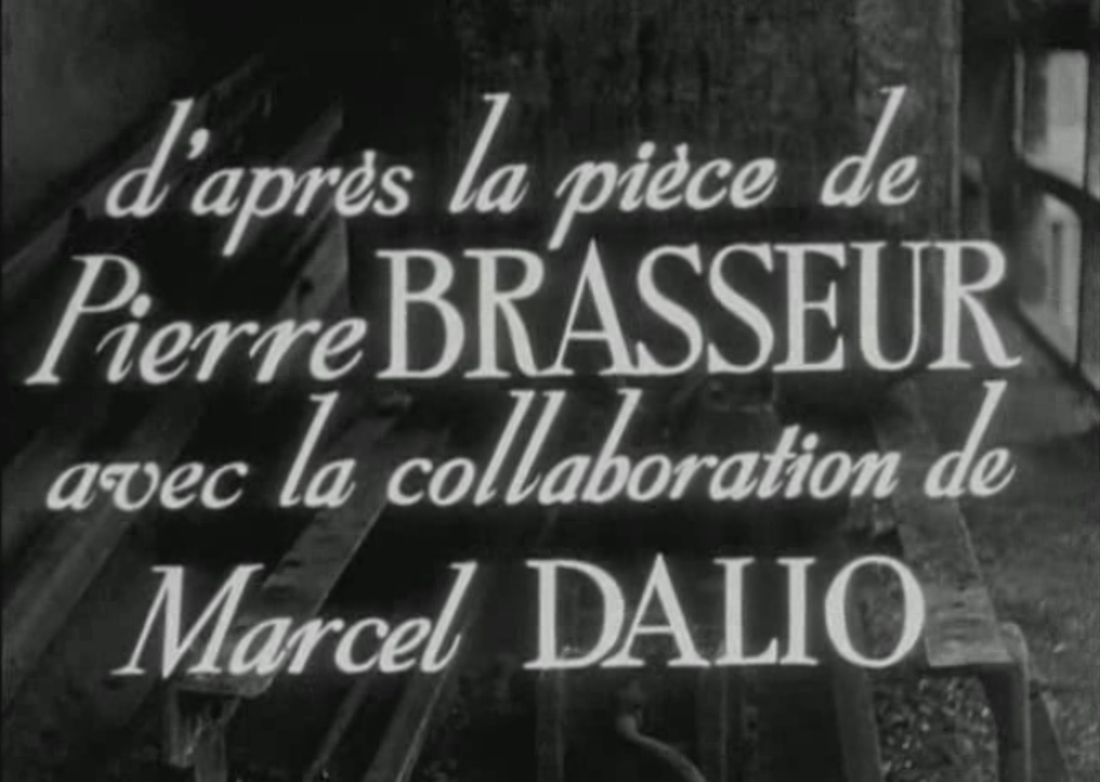
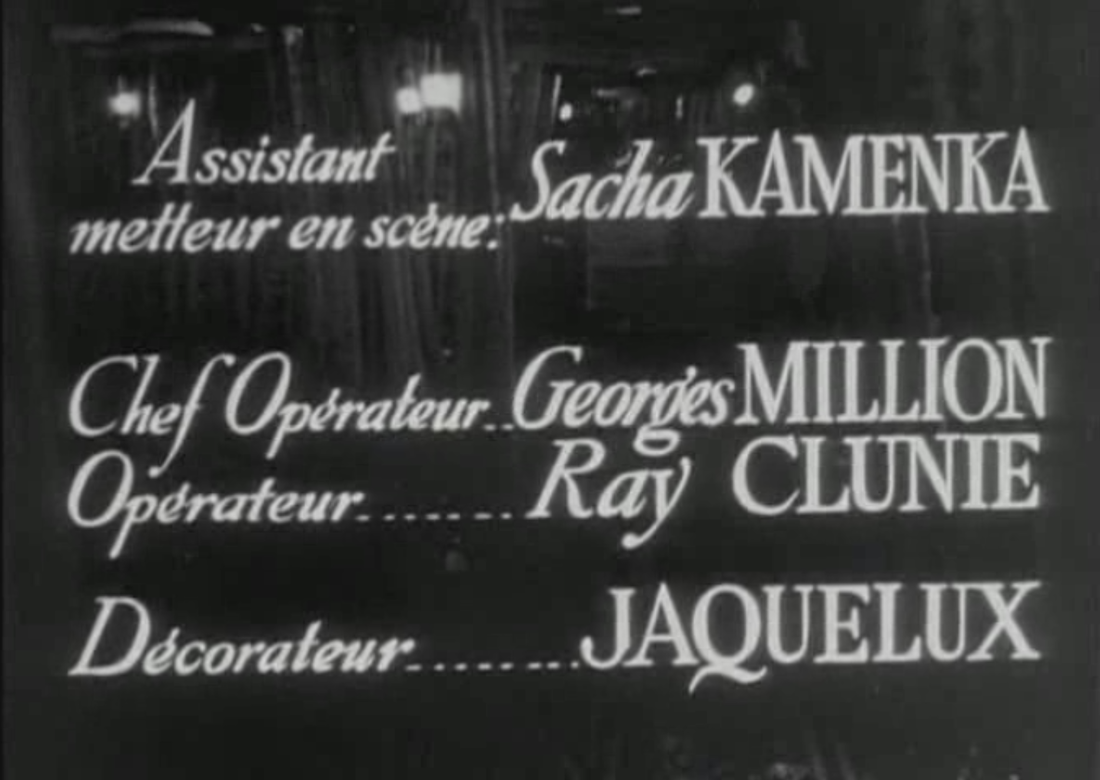
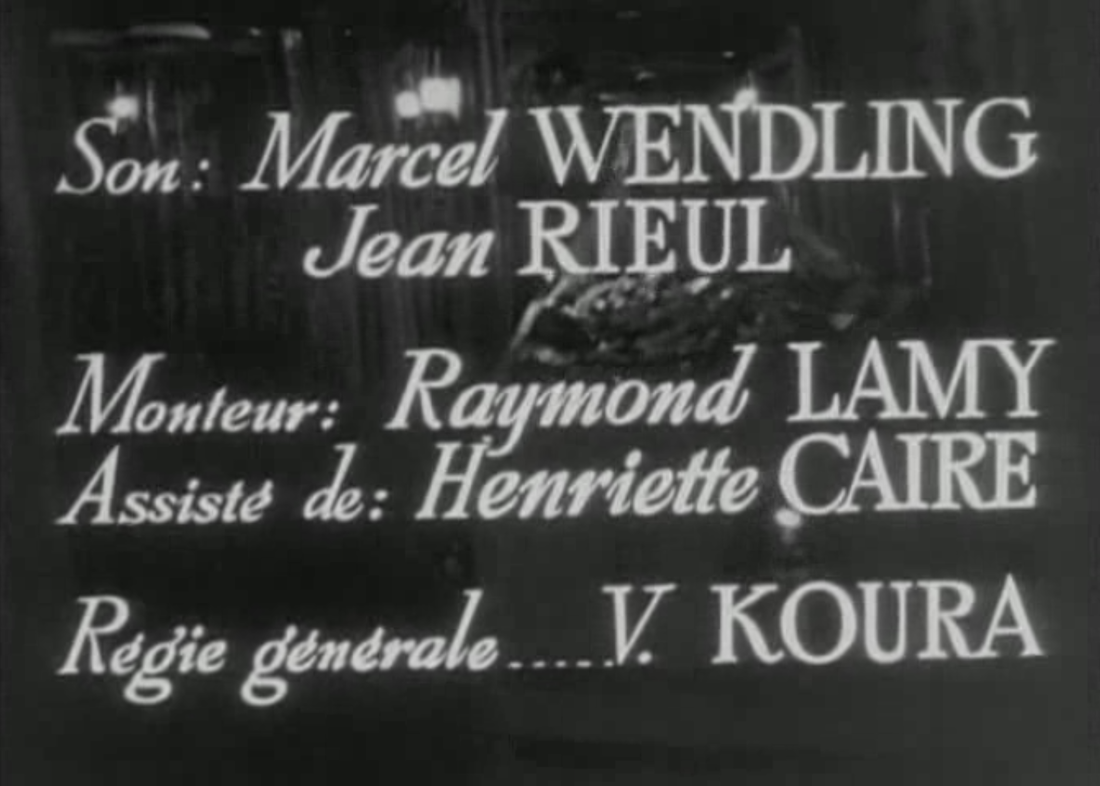
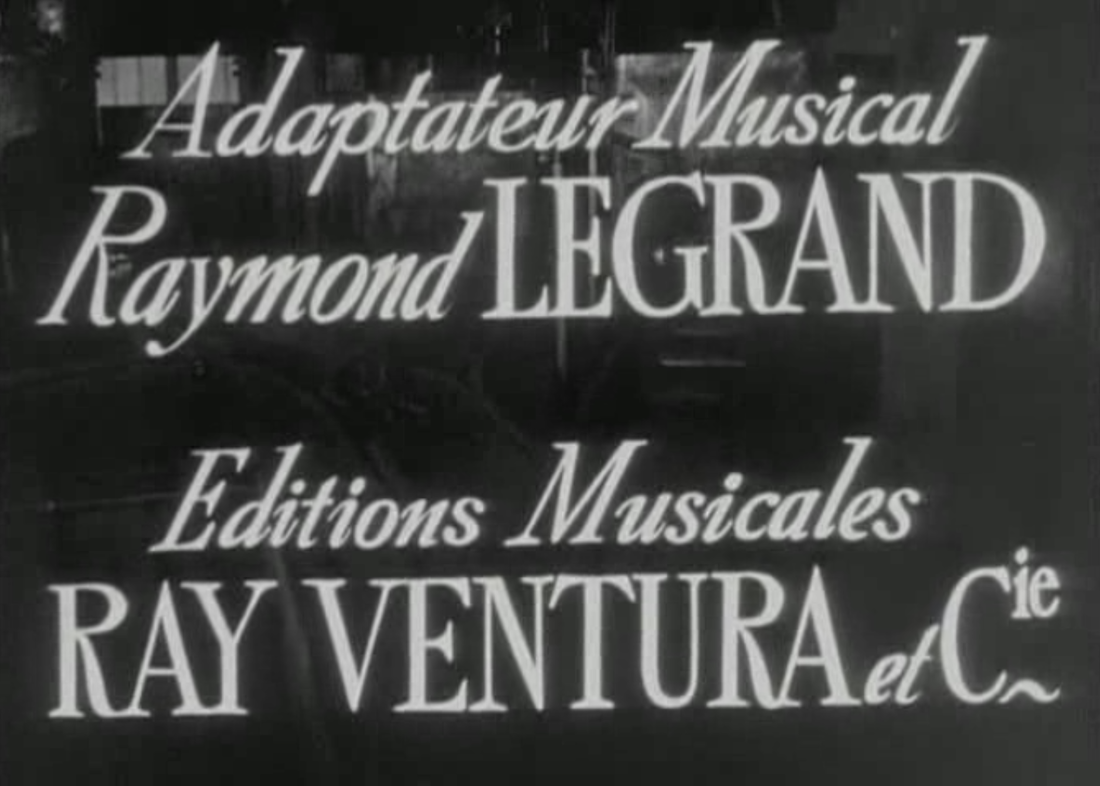
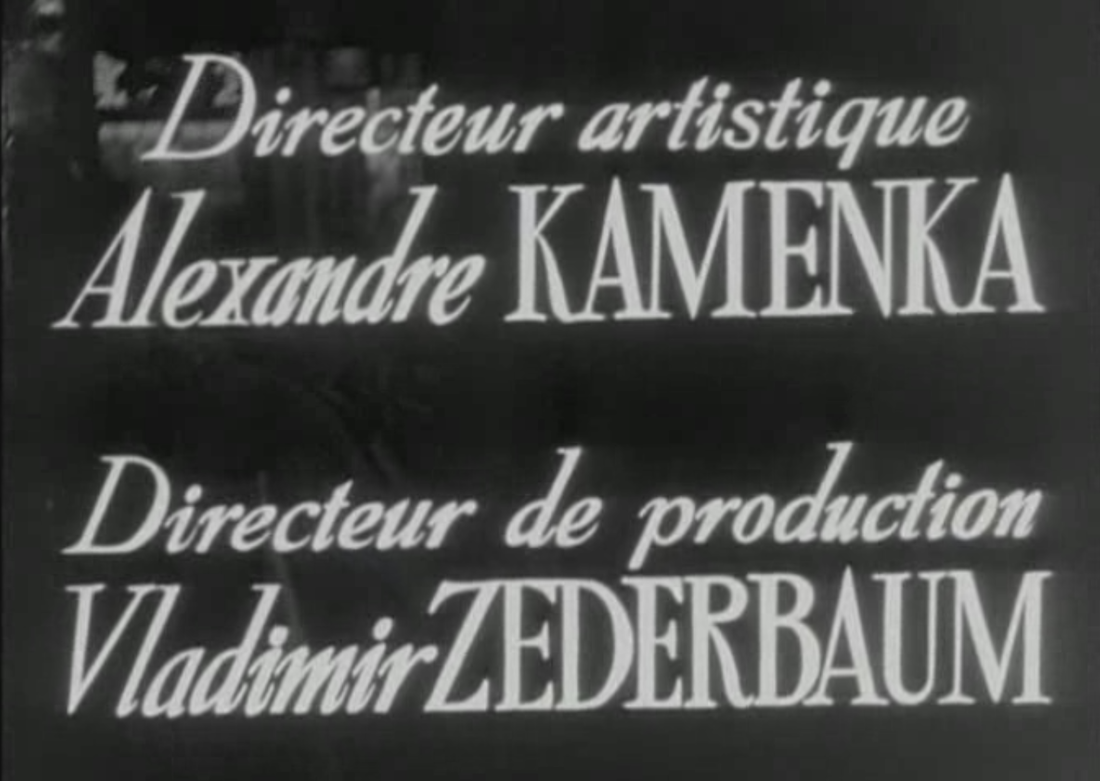
 RSS Feed
RSS Feed